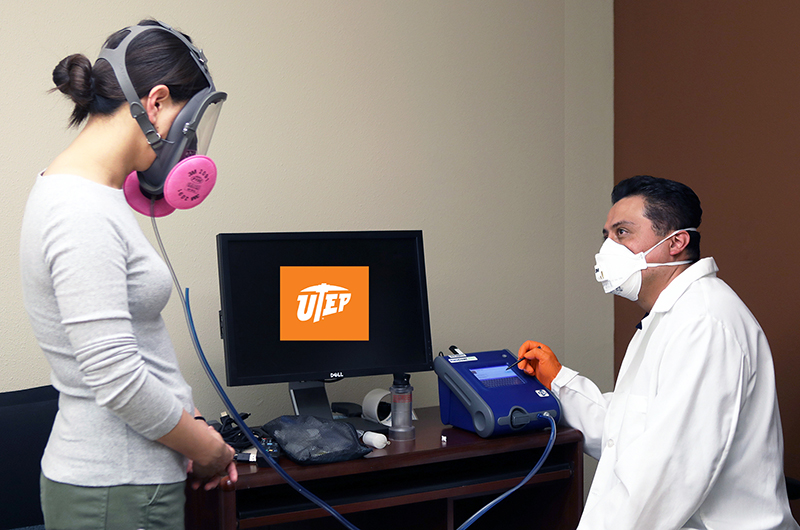UTEP Partners with Local Health Care Professionals to Fit Test Personal Protective Equipment
Last Updated on April 10, 2020 at 12:00 AM
Originally published April 10, 2020
By UC Staff
UTEP Communications
EL PASO, Texas – The University of Texas at El Paso’s Environmental Health and Safety department (EHS) is working with local health care professionals to fit test their personal protective equipment (PPE) to ensure that they are properly protected while working amid COVID-19 patients.

EHS is utilizing its equipment to fit test N95 respirators and other respirators using an instrument to measure leakage around the face seal to ensure that the individual wearing the mask is protected while working in hazardous environments.
“Local health care professionals are on the front lines of this pandemic, and it is important that they have proper protection,” UTEP President Heather Wilson said. “The fit testing service provided by our Environmental Health and Safety department is one example of how UTEP experts are helping to ensure the well-being of our community.”
Robert Moss, assistant vice president for EHS, said the department realized that health care workers contracted to work at hospitals may not be adequately fit-tested for certain types of their own personal protective equipment at their workplace.
“We have a lot of diverse skills in our group and I think it’s important that we all pull together to do everything in our capacity to assist the community,” Moss said. “We’re only going to get through this in as much as we can protect each other by keeping our social distance and facilitating good science.”
Nancy Liévano, DO, physician at The Hospitals of Providence East Campus, said that although it is reasonable that hospitals throughout the world have limited supplies of PPE, supplies are quickly being exhausted.
Liévano said Providence assured her it would not run out of a supply of PPE, but as a precaution, she purchased P95 and P100 respirators to have as her own personal backup. She said her husband, a doctoral student at UTEP, referred her to EHS after having previously been fit-tested for a mask for his job.
“At least for me, that peace of mind is invaluable,” Liévano said. “I’m really grateful to UTEP and its community for having that service and being generous enough to offer it.”
Liévano said it is important to have a properly fitted mask to not only protect herself, but the patients she serves.
“If a patient gets me sick and I don’t know it, if I’m asymptomatic and I continue to work because I don’t know it, I could potentially spread it to other sick people that come to the hospital for reasons other than COVID,” Liévano said.
The machine used by EHS for fit-testing features a hose and an adapter that plugs into the mask so it can measure the particles inside the person’s breathing zone, while another hose measures the particles found in the environment outside the mask, said Emilio Rodriguez, director of Environmental Health and safety.
“The particle counter measures the concentration of particles in the ambient air versus the ones that have leaked inside the mask, providing a direct assessment of the respirator’s fit,” Rodriguez said. “From that algorithm and a series of tests, the machine indicates whether or not there is an acceptable fit.”
The quantitative fit test that EHS provides features a series of eight exercises performed for one minute each. Those tests include normal breathing, deep breathing, moving your head side to side, moving your head up and down, bending over or jogging in place, talking, and grimacing.
